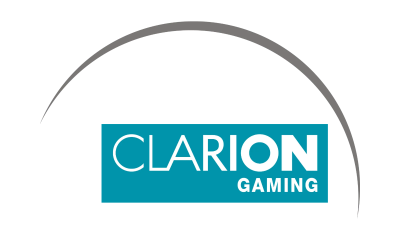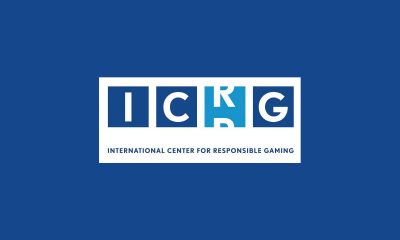Gambling in the USA
New study shows potentially alarming link between military service and gambling disorder

- Research carried out by University of Nevada, Las Vegas (UNLV) and Bowling Green State University reveals rate of problem gambling among active duty military was 3.5 times higher than among civilians
- Rate of problem gambling among active duty military was 68.6% compared with 18.7% among civilians
- Of the 102 active duty personnel who completed the survey, 70 screened positive for problem gambling
At yesterday’s International Center for Responsible Gaming (ICRG) Conference on Gambling and Addiction in Las Vegas, Shane W Kraus, Ph.D., Department of Psychology, UNLV, and Joshua Grubbs, Ph.D., Bowling Green State University, revealed a potentially huge and alarming discrepancy between problem gambling amongst the military community compared with civilians.
With research scarce in this field, Dr. Kraus’ research was funded by behavioral health expert Kindbridge Research Institute (KRI) to analyze data from a large, sample of military personnel, representing one of the first longitudinal studies of gambling in this group.
The study of 3,050 US civilians, veterans and active duty military showed the rate of problem gambling among active duty military (68.6%) was 3.5 times higher than among civilians (18.7%). While the sample of 102 active duty service members who completed the survey was relatively small, 70 of them screened positive for problem gambling.
Following his presentation on Monday, Dr. Kraus, said: “Our findings suggest that more comprehensive research is needed to fully understand how widespread the issue of problem gambling is among active duty personnel. Current trends in the data suggest there could potentially be many service members with unmet treatment needs for problem gambling.”
KRI is leading the drive for greater awareness, research and treatment for US veterans suffering from gambling disorder via its Military Research Associate Program (MRAP), which assists veterans transitioning from military service to advanced training in mental health treatment and research, and its 50x4Vets project, whose goal is to increase the rate of research on treatment for veterans with gambling disorder by 50-times in the next four years.
This research was supported by donations to KRI from DraftKings and Playtech. The data was collected as part of funding awarded to Drs. Joshua Grubbs and Shane Kraus for their work on sports betting from the ICRG.
Commenting on Dr. Kraus’ findings, Nathan D.L. Smith, PhD, Executive Director of Kindbridge Research Institute, said: “This really is a ‘canary in a coal mine’ moment. Because of the sampling method and small sample size, the rate of problem gambling in this sample cannot be generalized to the wider active duty military community. However, the significant rate of gambling problems in active duty military is a major red flag and larger, more representative studies of active duty military are now vital to determine what the true rate of gambling disorder is in this population.”
The US Department of Defense (DoD) operate over 3,000 slot machines on overseas bases that produce over $100 million dollars of revenue each year. A recent review of the responsible gambling policies mandated by states and the DoD by KRI placed the DoD worst out of the 36 jurisdictions with legal slot machine gambling.
Dr. Smith said: “Our review concluded that the DoD requires only one of the ten responsible gambling policies recommended by the American Gaming Association, while the average number of responsible gambling policies required in the other 35 states was just over seven.”
Another major issue facing military personnel suffering from gambling disorder is seemingly a discouragement from seeking help.
Dr Smith added: “Active duty military seek help for problem gambling at significantly lower rates than the civilian population. The reasons for this are likely complex, but a major factor may be that active duty military can face consequences in their career, including discharge, if they report a gambling problem to military medical staff.
“People with untreated gambling problems can get caught in a destructive cycle of negative feelings and gambling to escape those feelings, which leads to more negative emotions. In a situation where treatment is not available, these harmful spirals can cause significant damage to a person’s home life, career, mental health, and finances.
“In severe cases, a person in a negative spiral can exhibit suicidal behavior. In fact, in one study, 40% of US veterans receiving treatment for gambling problems reported a suicide attempt.”
-

 Latest News5 days ago
Latest News5 days agoBitStarz Casino Review 2025: The Leading Crypto & Bitcoin Casino With Instant Withdrawal, Fast Payout & Latest Bonuses!
-

 Latest News5 days ago
Latest News5 days agoEGT Digital’s games are available to Bangbet’s customers in Tanzania
-

 Interviews5 days ago
Interviews5 days agoScale isn’t everything: Why agility is the new advantage in live casino
-

 Latest News4 days ago
Latest News4 days agoBC.GAME Strengthens African Strategy with Dual Regulatory Approval in Kenya
-

 eSports5 days ago
eSports5 days agoNODWIN Gaming and JioStar unveiling BGMS Season 4 with OnePlus as Title Partner and Android as Co-Title Partner
-

 eSports5 days ago
eSports5 days agoThe MongolZ Lift the Counter-Strike 2 at Esports World Cup Trophy, as Hero Run Ends in Title Triumph
-

 Latest News5 days ago
Latest News5 days agoHIPTHER Announces In-Person Events Rebrand, Baltics Focus & Digital Events Lounge for 2026
-

 Latest News4 days ago
Latest News4 days agoRising Bonus Abuse in Sports Betting: Fraudsters Leveraging Hidden AI Powered Bots































